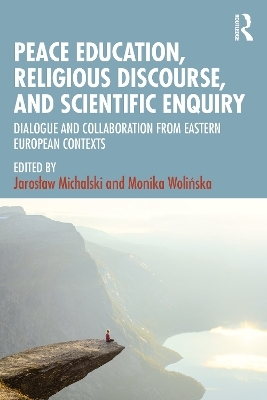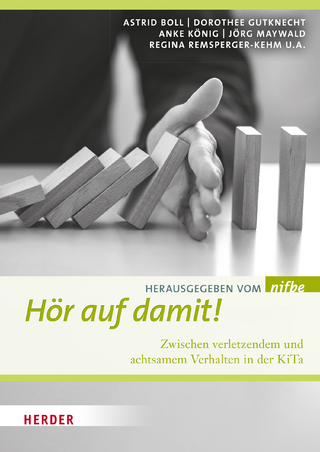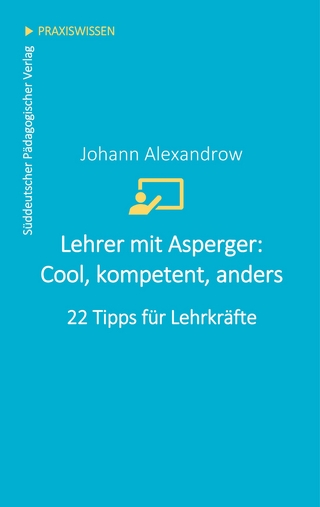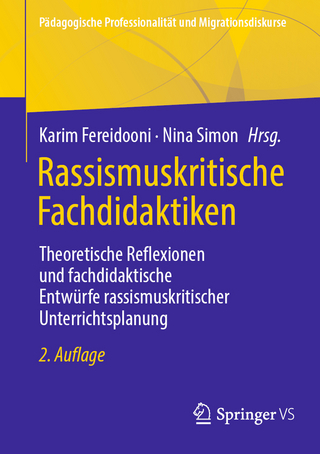
Peace Education, Religious Discourse, and Scientific Enquiry
Routledge (Verlag)
978-1-032-93833-2 (ISBN)
- Noch nicht erschienen (ca. Dezember 2024)
- Versandkostenfrei innerhalb Deutschlands
- Auch auf Rechnung
- Verfügbarkeit in der Filiale vor Ort prüfen
- Artikel merken
Providing an overview of the historical and cultural context of peace education in Eastern Europe, chapters look initially at the theoretical foundations, emphasising the need for empathy, internal peace, and traditional values. Featuring contributions from the US, Germany, Italy, Slovakia, Turkey, and Poland, subsequent sections outline ethical, moral and religious dimensions to inform effective peace education strategies, along with a discussion on how they can be harmonised with secular approaches to provide a holistic framework for peace education. Case studies and practical applications follow, ranging from Maria Montessori's educational approach to the role of social media and sustainability in peace education, providing readers with a comprehensive understanding of how different perspectives can inform effective peace education strategies.
With implications and take aways for educators and researchers looking to foster a culture of peace and non-violence, this book will be of interest to scholars, policy makers, postgraduate students and curriculum designers in the fields of peace education, values education, conflict resolution, and social cohesion more broadly. Those working in peacebuilding organisations and NGOs more widely may also benefit from the chapters.
Jarosław Michalski is Professor of Pedagogy, Cardinal Stefan Wyszynski University in Warsaw, Poland. Monika Wolińska is Head of the Department of Special Pedagogy and Inclusive Education, University of Mazovia in Plock, Poland.
Introduction
Part 1. Theoretical Foundations and Perspectives of Peace Education
Chapter 1. Education for peace and promotion of dialogue
Chapter 2. Inner peace a habitat for life and social ecology
Chapter 3. Collective war and individual peace – from classical archaeology to postmodern reality
Chapter 4. Mondialization of peace and anthropological parallel. A voice in discussion
Chapter 5. Psychological and pedagogical conditions of education for peace (EFP) in the family system
Chapter 6. Can forgiveness offer freedom from hatred and promote peace in your heart and homeland
Chapter 7. The significance of empathy in the development of a peaceful society
Chapter 8. Shaping a culture of peace as an educational challenge
Part 2. Ethical, Religious, and Axiological Approaches to Peace Education
Chapter 9. The common good as a prerequisite for social peace and its role in education for peace. A discussion on Jonathan Haidt's Moral Foundations Theory (MFT)
Chapter 10. Axiological foundations of education for peace in „Pacem in Terris” by St. John XXIII and its relevance to contemporary challenges
Chapter 11. The world of values in preventive education of St. Giovanni Bosco. Peace as a condition of justice
Chapter 12. Living together in harmony and peace – the message of Pope Francis in the encyclical Fratelli tutti
Chapter 13. To make peace. Christian inspirations for peace pedagogy
Chapter 14. Accompaniment as a strategy for peace education
Chapter 15. Internal anxiety and peace of heart among youth: exploring the role of religiosity and spirituality
Part 3. Contemporary Strategies and Applications in Peace Education
Chapter 16. Academic education for peace – role and opportunities for practical implementation
Chapter 17. The sparks of war and sources of peace – an individual’s perspective
Chapter 18. Education for human rights: a way to overcome conflicts
Chapter 19. In favour of peace. Maria Montessori against social inequalities, exclusion and injustice
Chapter 20. Respect for nature and the specific developmental features of a small child as the basis for peace education
Chapter 21. Socio-moral approval of interpersonal aggression versus war anxiety and persistent thinking about war in young adults
Chapter 22. The importance of social media – in shaping peaceful attitudes
Chapter 23. Upbringing for peace in education for sustainable development
| Erscheint lt. Verlag | 12.12.2024 |
|---|---|
| Zusatzinfo | 1 Tables, black and white; 10 Line drawings, black and white; 3 Halftones, black and white; 13 Illustrations, black and white |
| Verlagsort | London |
| Sprache | englisch |
| Maße | 156 x 234 mm |
| Themenwelt | Sozialwissenschaften ► Pädagogik ► Bildungstheorie |
| Sozialwissenschaften ► Politik / Verwaltung ► Europäische / Internationale Politik | |
| ISBN-10 | 1-032-93833-1 / 1032938331 |
| ISBN-13 | 978-1-032-93833-2 / 9781032938332 |
| Zustand | Neuware |
| Haben Sie eine Frage zum Produkt? |
aus dem Bereich


